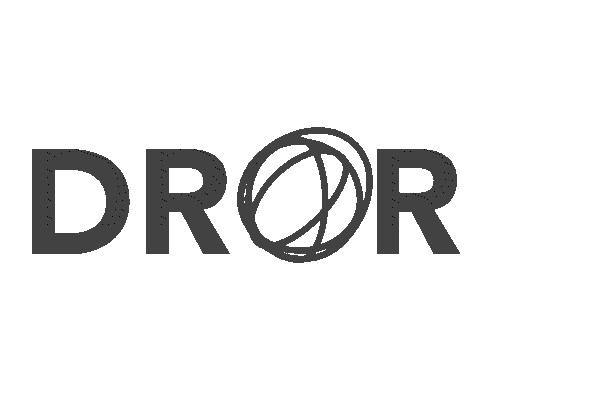Whose Opinions Deserve to be Heard on Social Media?
- Dror Margalit
- Mar 21, 2021
- 4 min read
Updated: Oct 26, 2021
Over the last century, social media have shifted control over communication channels and gave the public more power fast and on a massive scale. This power enabled people to be exposed to information from all around the globe and drive political and social change like never before. When I came across the article “Social Media: Enemy of the State or Power to the People?” in 2021, it felt like a time capsule from 2014, looking at all of the opportunities of social media, without knowing the dangerous circumstances that it will expose to us.

The author of the article, Pierre Omidyar, claims that “social media is a tool for liberation and empowerment.” Reading this argument today, knowing that people use it to spread misinformation and influence political opinions, made me think: does using social media as a tool for liberation and empowerment overcome the dangerous circumstances they expose to humanity?
Omidyar argues that the “Arab Spring,” uprisings in multiple Arab countries in the early 2010s, showed how social media enabled riots to organize protests and drive political change. Omidyar also suggests that social media played an important and instrumental role in allowing the people to communicate and organize revolutions at a fast pace - taking power from those who controlled the traditional media and giving it to the people. This argument, I believe, is still true today. The shift of control over communication, which made the masses communicate fast on a large scale, enabled riots worldwide to organize and drive change.
Following George Floyd’s death in May 2020, for example, social media played a crucial role in the fight for racial justice. Estimates show that between 15 to 26 million people in the U.S. participated in protests against racial injustice last Summer, which turned them into the larges movement in history U.S. history. Deva Woodly, an associate professor of politics at The New School, stated that the Black Lives Matter movement could share materials, guidance, and protest details quickly on social media, which was one of the reasons that enabled protests in so many places. In other words, without social media, the racial unrest might not have been so large and impactful.
Such use of social media as a tool for liberation and empowerment is incredible, but with social media’s good impact comes an ethical dilemma: who decides what a “good” or “bad” social change is? Letting everyone the power to be heard anytime and anywhere can be dangerous. One example of social media’s dangerous effect is the impact of the spread of misinformation during the COVID-19 pandemic. According to a study published in “The American Journal of Tropical Medicine and Hygiene,” by April 2020, “approximately 800 people have died, whereas 5,876 have been hospitalized and 60 have developed complete blindness after drinking methanol as a cure of coronavirus” (Md Saiful 2020). The study found that it happened because of the spread of the myth that consumption of highly concentrated alcohol could disinfect the virus. It was not COVID-19 that caused those tragedies, but misinformation spread on social media. Therefore, what is more important: providing everyone the voice they deserve or public health?
The problems that arise because of the voice that social media enable everyone are even more challenging when it comes to political issues. Political opinion, social norms, and values are matters of perspective. Thus, if we want social media to enable everyone’s voice to be heard, the platforms’ algorithms cannot determine which opinions are legitimate and which are not. This introduces a problem to social media as a tool for liberation and empowerment and makes truth a mere perspective. For example, the followers of Former President Donald Trump, who stormed the U.S. Capitol after he falsely claimed that the 2020 presidential elections were stolen from him, believed that they were doing the right thing. In their perspective, they were saving the country, and, similar to the Arab Spring, they too used social media as a tool for liberation and empowerment. The fact that many people might see storming the Capitol as one of the most anti-democratic acts in American politics does not matter here; what matters is that in the perspectives of the mob, they were heroes. In that case, how can social media platforms determine when whose perspective deserves to be heard? Whose political views deserve to be on social media? Should social media intervene in the communication flow or just serve as a platform that enables it?
I believe that the voices that will “survive” on social media are the ones who benefit the platforms’ owners. This means that, in a sense, the control over communication channels stays with the minorities who also have a lot of wealth. Social media is unlike any other medium in human history because of their reach, speed, and accessibility. There are no other media where every person (with access to a computer) can share their ideas worldwide immediately for free. As long as it stays that way, social media will continue to be a tool for liberation and empowerment for everyone on earth; a tool that is owned by a minority.
References:
Omidyar, Pierre. “Social Media: Enemy of the State or Power to the People?” Huffpost. February 27, 2017. Updated Dec 01, 2014.
Buchanan, Larry. Bui, Quoctrung. And Patel, Jugal K. “Black Lives Matter May Be the Largest Movement in U.S. History.” New York Times. July 3, 2020.
Islam, Md Saiful, et al. "COVID-19–related infodemic and its impact on public health: A global social media analysis." The American Journal of Tropical Medicine and Hygiene 103.4 (2020): 1621.
Karni, Annie and Haberman, Maggie. “Trump openly condones supporters who violently stormed the Capitol, prompting Twitter to lock his account.” January 6, 2021.
The article was edited on 08/24/2021




Comments